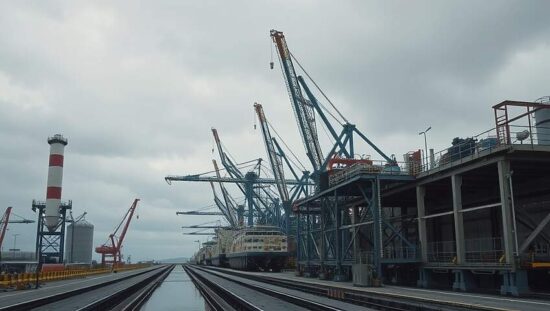The German government faces mounting pressure to terminate Securing Energy for Europe’s (SEFE) ongoing business relationship with Russia, specifically concerning a lucrative long-term contract for liquefied natural gas (LNG). Anton Hofreiter, a prominent Green Party Member of the Bundestag and Chairman of the EU Affairs Committee, is urging swift action, citing the EU’s newly implemented 19th sanctions package as a pivotal opportunity.
The contract, originally established when the entity was known as Gazprom Germania, commits SEFE to purchasing 2.9 million tons of LNG annually from the Russian company Yamal Trade Pte. Ltd., a commitment stretching to 2040. Hofreiter argues that the latest EU sanctions, set to fully prohibit LNG imports under long-term contracts from January 1, 2027, creates a clear legal basis for SEFE to prematurely terminate the agreement. He contends that continued purchases directly contribute to the financing of Russia’s ongoing war against Ukraine, a moral and political liability for Germany.
While the Federal Ministry for Economic Affairs and Climate Action (BMWK) initially expressed reservations, a recent response to a Green Party inquiry indicates a shift in perspective. The ministry now acknowledges that both the “RePowerEU” regulation and the 19th sanctions package likely allow SEFE to cease LNG deliveries under the existing Yamal contract and invoke “force majeure”. The BMWK explicitly supports efforts aimed at bolstering EU sanctions measures.
However, the immediate cessation of the contract is complicated by a “take-or-pay” clause, which stipulates that SEFE must continue to make payments even if the LNG is not imported. The BMWK warns that failure to do so could allow Yamal to profit twice – receiving payment while simultaneously selling the undelivered LNG to other markets.
Legal experts suggest that only a situation qualifying as “force majeure” – typically involving direct military conflict, natural disasters, or epidemics – offers a viable path to contract termination. The BMWK seems to be banking on the 19th sanctions package inadvertently creating conditions that permit SEFE to leverage this defense.
The situation highlights a complex political dilemma: Germany’s commitment to reducing its reliance on Russian energy collided with contractual obligations established during a period of closer ties with Moscow. The government’s response will be scrutinized, not only for its legal justification, but also for its broader commitment to isolating Russia economically and supporting Ukraine. The prolonged uncertainty surrounding SEFE’s actions raises questions about the transparency and effectiveness of Germany’s energy transition strategy in the face of ongoing geopolitical challenges.





